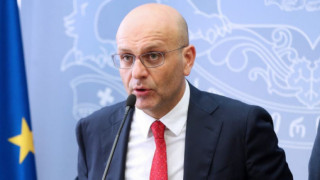Resume: The aim of the Law of Georgia on State Procurement is to ensure the rational spending of money and the transparency of this process. In order to have an efficient spending, it is important to have a procurement process carried out publicly, in a non-discriminatory and transparent environment, when all potential suppliers can enjoy the equal opportunity to participate in the process.
In accordance with the aforementioned law, state procurement can be conducted by both electronic procurement (open tender) and in exceptional cases by simplified procurement (direct procurement). As compared to electronic procurement, simplified procurement is carried out in a less competitive environment and under less transparency. Therefore, it is associated with increased risks both in terms of spending efficiency and corruption. Accordingly, reducing the share of simplified procurement in the amount of total procurement is recommended.
As of 2017, the share of simplified procurement decreased by 12.8 percentage points, from 37% to 24.2% as compared to the previous year, from within the total cost of procurement as prescribed by the Law of Georgia on State Procurement. These figures do match with those named by the Minister of Finance, Ivane Machavariani. In 2014-2015, this figure was 32% and 33%, respectively.
Analysis
The Minister of Finance of Georgia, Ivane Machavariani, in his speech before the Parliament of Georgia, spoke about state procurements. As stated by the Minister, the share of simplified procurement has dropped from 37% to 24%.
The Law of Georgia on State Procurement governs the part of public finances which are spent by the spending institutions, budget organisations and state/municipal enterprises. In other words, the law governs the spending of a specific part of public finances to ensure spending efficiency, competition and non-discrimination in procurement. The law does not govern other parts of the spending of public finances. For instance, the labour remuneration of individuals employed under administrative and labour contracts, procurements related to state secrets, etc., are beyond the scope of this law.
State procurement can be conducted in two ways: simplified procurement and electronic procurement.
Simplified Procurement – it possible to conduct state procurement by simplified procurement when the value of homogenous objects of procurement does not exceed GEL 5,000 or when there are cases prescribed the law. In those cases prescribed by the law, this implies that there is only one procuring entity for the goods and services, procurement is of urgent necessity or urgent procurement is needed to ensure that events of state and public importance are held without hindrance within a limited timeframe, there is a danger that the quality of the goods will deteriorate or representative expenses are incurred, etc. In these particular cases, the state does not make procurement through electronic trade and this is called direct procurement. Here, the customer organisation concludes a contract without a tender and by negotiating with only one individual. In most cases, direct procurement is conducted under less competition and it is believed that it is associated with high risks of corruption.
Electronic Procurement – State procurement by electronic procurement is carried out by electronic tender, consolidated tender and competition. The customer organisation, in accordance with the law and procedures as prescribed by sub-legislative acts, places a tender/competition announcement in the procurement electronic system. The procuring entities submit tender proposals electronically and electronic trade takes place between them. The tender commission makes decisions based on the results of the electronic trade and this decision serves as the basis to conclude a contract on state procurement. Given the fact that electronic procurement is based on electronic trade, this method ensures the spending of public funds allocated to the budget and spending institutions in a competitive environment. In addition, electronic procurement means are instruments of the transparent spending of public finances and risks of corruption are less as compared to simplified procurement.
Graph 1: Share of Procurement Methods in the Total Amount of State Procurement Contracts (%)

Source: State Procurement Agency
The State Procurement Agency publishes an annual report on state procurement. The Agency has published its report for 2017; the report for 2018 report is not available yet although the deadline to submit it to the Government of Georgia is 15 May. Therefore, the Minister’s statement refers to the figures for 2017. In 2017, the total value of state procurement was GEL 3,664.6 million. Of this amount, GEL 881.2 million in goods and services were purchased by simplified procurement and GEL 2,762.4 million in goods and services were purchased by electronic procurement. These figures are reflected in the total value of state procurement as follows: the share of simplified procurement in the total procurement is 24.2% and the share of electronic procurement is 75.8%. In 2016, the share of simplified procurement was 37% and this figure decreased by 12.8 percentage points by 2017.








